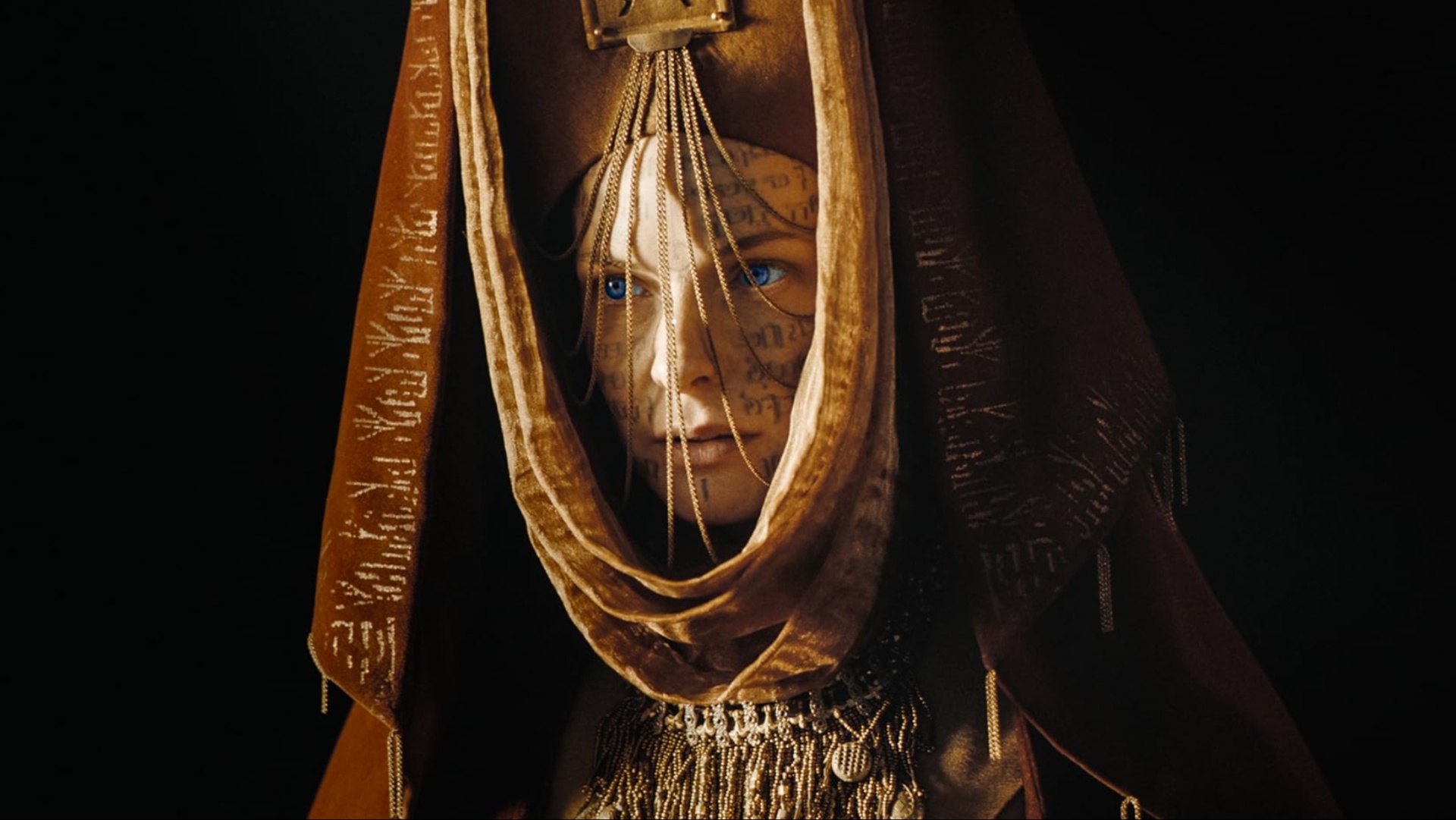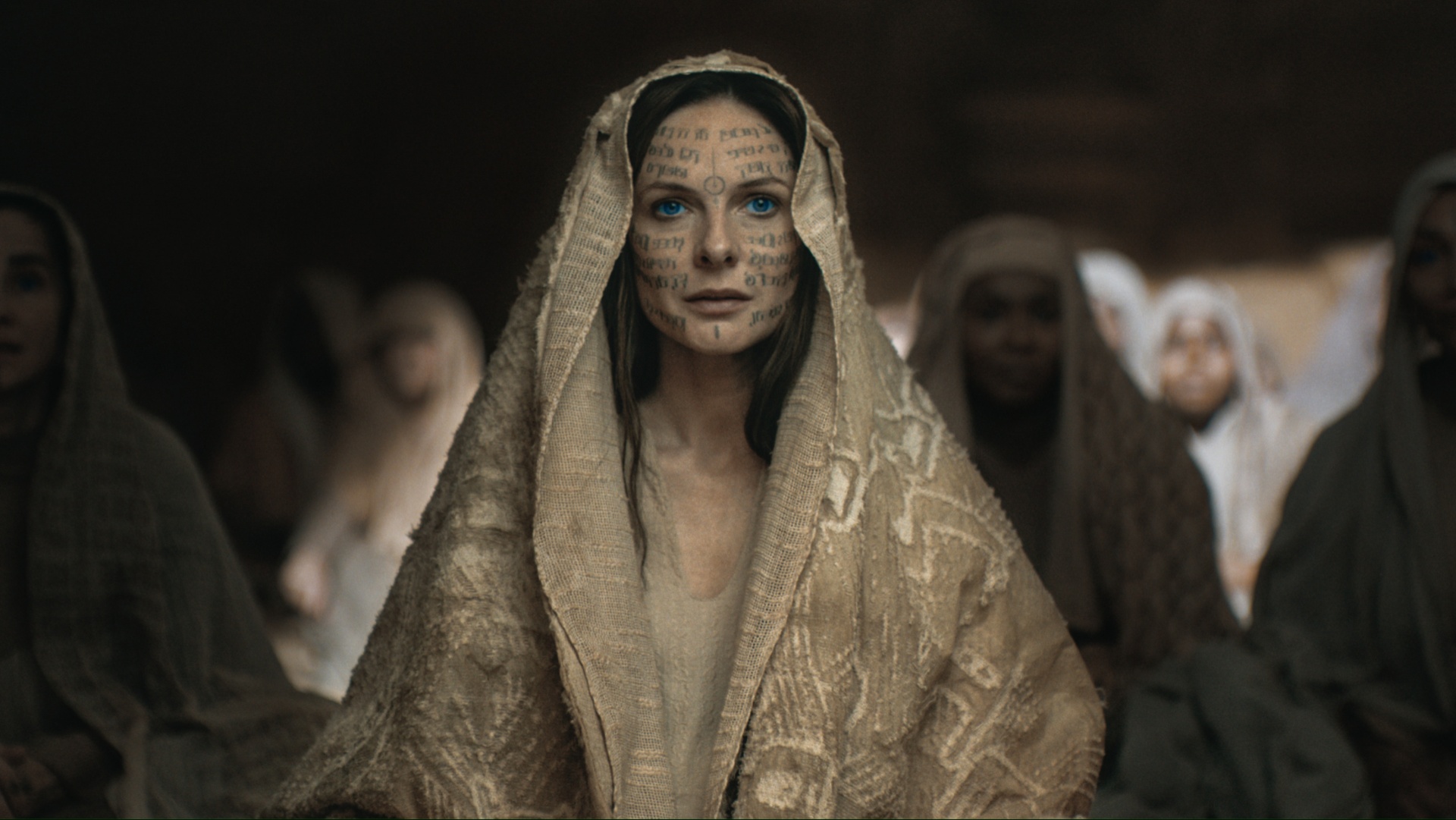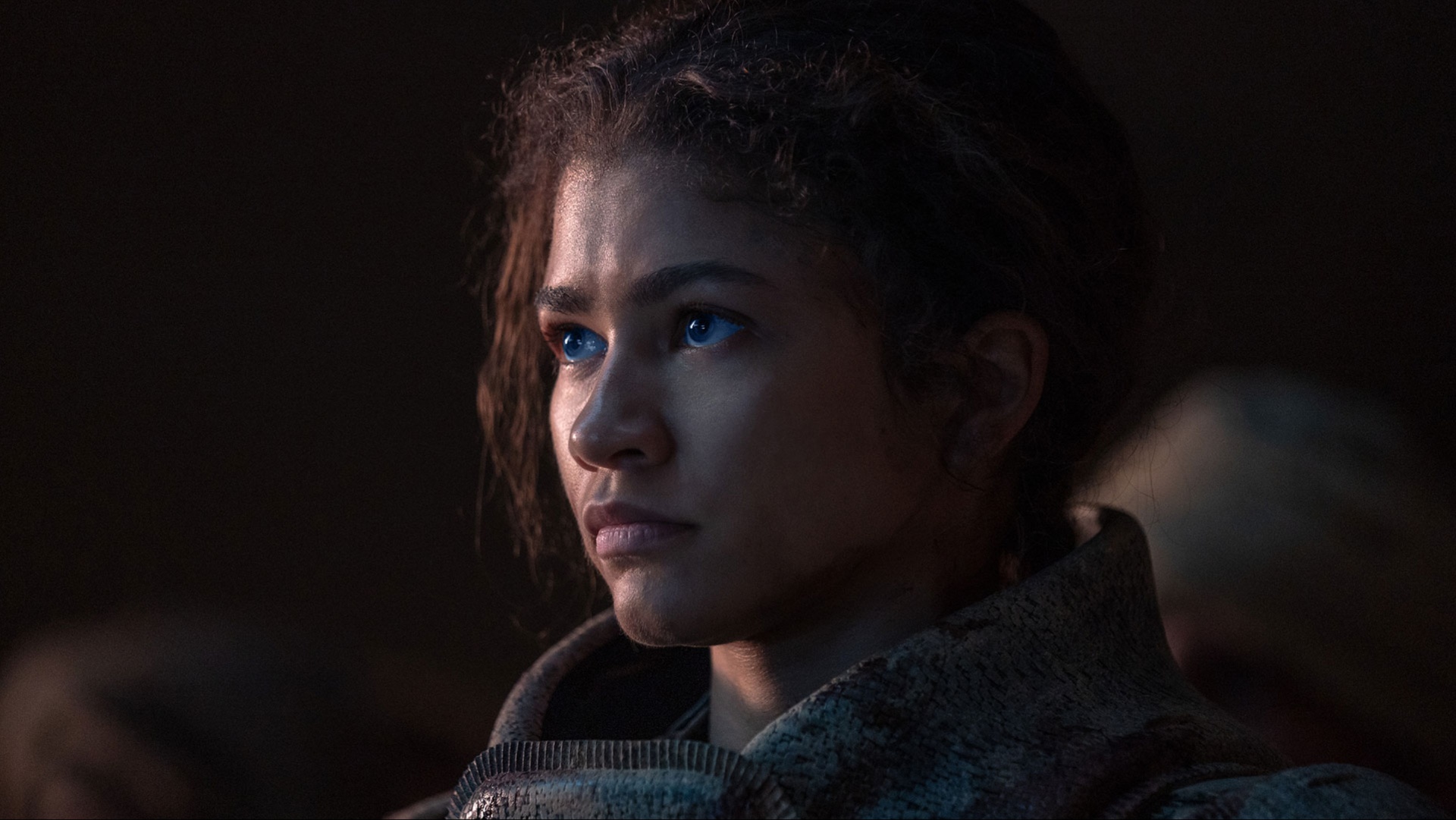Dune 2's divergence from the novel shifts the focus to women – and motherhood
Opinion | Dune: Part Two brings motherhood into focus in a powerful way

In Dune: Part Two, Denis Villeneuve flips the script – there are more action sequences in the sequel compared to 2021's Dune, more sandworm-riding, and more at risk. However, there are also changes in the sequel that are less bombastic than Timothée Chalamet's Paul harnessing the Shai-Hulud: the role of the film's women. Dune is Paul's story, undoubtedly, but he's not the one writing it. The Bene Gesserit runs the world, a group of all-powerful women acting as puppet masters while male barons and lords fight over spice fields, so it makes sense for their members to stay at the forefront of the narrative.
In sci-fi and genre fiction more generally, though, motherhood is often monstrous. Pregnancy and labor are represented as visceral, brutal acts, symbolized most famously in Alien's chest-bursting scene, in which the parasitic alien Xenomorph breaks free from Officer Kane's body. The Bene Gesserit are mothers, but they're not maternal. These women are calculating, enmeshed in the workings of the universe, but emotionally removed from the consequences of their schemes.
Paul's mother, Lady Jessica (Rebecca Ferguson), is a member of the Bene Gesserit, and his birth is a result of the group's machinations. "Strangely, Jessica’s more in the background in the second part [of the novel] – I thought that was not proper," Villeneuve previously told Total Film. "She’s still Lady Jessica, the main architect of the story. I thought that was a very powerful idea that was not sustained in the book. I made sure that she has the character presence in the second part."
Safe and holy

When Paul and Lady Jessica join the Fremen, she takes on the mantle of Reverend Mother, faced with a choice between that title and death. As the mother of the Lisan al-Gaib, the fabled prophet destined to lead Arrakis' native Fremen people to salvation, she gains social capital in Fremen society through a holy reverence. Heavily pregnant with a baby girl, her position as a mother is solidified with every frame. Her unborn daughter speaks to her, asking questions and casting judgments, and Jessica becomes the infant's conduit to the outside world. Her pregnancy reinforces her status rather than undermining it.
Gaius Helen Mohiam (Charlotte Rampling), the Imperial Reverend Mother may not sit on the Emperor's (Christopher Walken) throne, but she's the one pulling the strings throughout the universe. In Dune: Part Two, we learn that it was her idea to exterminate House Atreides in Part One, and it's on her orders that Lady Margot Fenrig (Leá Seydoux) seduces the Harkonnen heir Feyd-Rautha (Austin Butler) to secure the House's bloodline. These women aren't just manipulating the present, they're shaping the future, too, and using their femininity and sexuality to do so.
The Emperor's daughter Irulan (Florence Pugh) represents a different kind of femininity. Despite being a princess, she remains relatively powerless when she leaves the safety of her ivory tower to travel to Arrakis with her father. When Paul seizes power from the Emperor, Irulan is used as a bargaining chip when she's betrothed to her father's usurper. Despite her education and royal upbringing, she's still not a Reverend Mother or a Bene Gesserit, so she has no strings of her own to pull. Power is not set in stone in Dune – as the murder of Paul's father Leto (Oscar Isaac) in Part One shows, noble status means nothing in the face of brutality.
Usually, with these kinds of stories – and often in real life – older women and mothers fade into irrelevancy, growing more powerless with age. Any kind of so-called power available for women in a patriarchal society is afforded to younger, attractive women and usually translates, in real terms, to nothing more than social currency. If they're lucky, older women function as a sage or medicine woman figure, a well of knowledge to be drawn from by the more important protagonist. If they're not, they're a crone – or, even worse, they're just kind of boring.
Bringing all the latest movie news, features, and reviews to your inbox
Moral compass

It’s interesting, then, that when it comes to motherhood, Villeneuve makes one particularly blatant change in Dune: Part Two. In Frank Herbert's novel, Chani (Zendaya), the Fremen woman who becomes romantically involved with Paul, becomes a mother in the book's second half. She and Paul have a son, Leto II, who's later killed in an attack by the Emperor's troops, but none of this happens in the movie. Chani takes center stage in the film, acting as a moral compass – and, ultimately, a dissenting voice – to Paul's increasing zealotry. "Chani is my secret weapon in this adaptation," Villeneuve told GamesRadar+ of her increased role.
This shift, then, feels somewhat at odds with the film's deviation from its source material to hone in on Jessica. With a reimagined focus on motherhood, why erase Chani's? Would it have looked and felt different to Jessica's? Would it have robbed her of the agency we see in the film, in which she acts as the voice of reason?
In the final act, when Paul defeats the Emperor and revels in victory before the Fremen, she walks away in a powerful act of defiance. She's a kind of foil to Jessica, who spurs on the religious fervor around the Lisan al Gaib, or chosen one. With Jessica so intrinsically linked to Paul and her unborn child, Chani's childless status creates an even wider chasm between the two characters. Mothers may be the puppet masters of Dune: Part Two, but they're not the only women with skin in the game.
Dune: Part Two is out now in cinemas. For more on the movie, check out the rest of our coverage:
- Dune 2 ending explained
- Does Dune 2 have a post-credits scene?
- What could happen in Dune 3, according to the books
- The Dune 2 and book differences
- Who does Anya Taylor-Joy play in Dune 2?
- When will Dune 2 be on streaming?
- Zendaya and Florence Pugh discuss the women of Dune 2
- Zendaya discusses Chani’s personal journey in Dune 2
- Director Denis Villeneuve on comparisons to The Empire Strikes Back
- Director Denis Villeneuve on Timothee Chalamet’s transformative performance
- Actor Stellan Skarsgard on playing the villain
- Actor Stellan Skarsgard on working with Austin Butler
I’m an Entertainment Writer here at GamesRadar+, covering everything film and TV-related across the Total Film and SFX sections. I help bring you all the latest news and also the occasional feature too. I’ve previously written for publications like HuffPost and i-D after getting my NCTJ Diploma in Multimedia Journalism.


